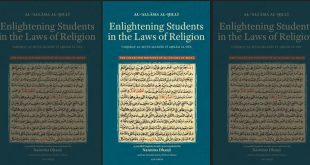This article demonstrates that commentators tend towards highly precautionary interpretations of non-Muslim impurity, including that of ahl al-kitab, with contrary views appearing only in the modern period.
The article “Defining the Boundaries of Sacred Space: Unbelievers, Purity, and the Masjid al-Haram in Shi‘a Exegesis of Qur’an 9:28” examines how some of the most preeminent commentators of the Shi‘a exegetical tradition have interpreted Qur’an 9:28 to frame the relationship between shirk (associating others with God), impurity, and the confessional boundaries around Islamic sacred space, the Masjid al-Haram in particular. The paper revolves around three main questions: how do commentators define the boundaries of shirk? What is the nature of the mushrik’s (polytheist’s) impurity? And, what is the extent of the prohibition against entering the Masjid and why? The paper demonstrates that commentators tend towards highly precautionary interpretations of non-Muslim impurity, including that of ahl al-kitab, with contrary views appearing only in the modern period. Nevertheless, despite some variance of opinion, the exegetical tradition on Qur’an 9:28 is not unique to Shi‘a Islam but reflects an understanding of what counts as sacred space and how separation acts to make space sacred that is found in religion more generally.
Bibliographic Information
Title: Defining the Boundaries of Sacred Space: Unbelievers, Purity, and the Masjid al-Haram in Shi‘a Exegesis of Qur’an 9:28
Author: Linda Darwish
Published in: Journal of Shi’a Islamic Studies, Volume 7, Number 3, Summer 2014. pp. 283-319
Language: English
Length: 25 pages
 Ijtihad Network Being Wise and Faithful Muslim in the Contemporary World
Ijtihad Network Being Wise and Faithful Muslim in the Contemporary World

